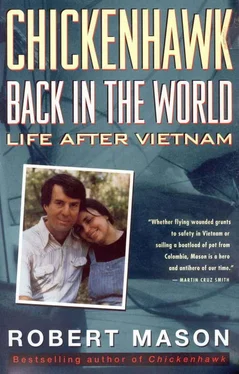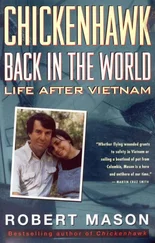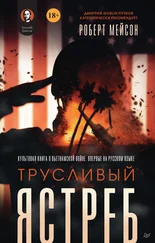That afternoon, Tarzan assigned me to landscape detail, known as “Iandscrape” in camp. I hung around the landscape shed in the shade of an oak tree. The shed was next to the service road that looped around the south end of the camp, and about twenty inmates were sitting in the sweltering heat waiting for Officer Simpson, the hack in charge of landscape. His regular team of a dozen inmates were there, including Barnett, along with about ten temporaries like me from the A&O gang.
“How come they got you on landscape?” I asked Barnett.
“I’m a troublemaker, Mason. This is where they put us.”
“I’d go nuts,” I said.
“It’s not so bad,” Barnett said. “It’ll get you in shape. It’s like working in your yard except you do it every day, seven to three.”
Officer Simpson showed up driving his blue pickup truck. He stood on the tarmac, pushed his baseball cap back revealing a sweaty brow, and began calling off names from his clipboard. Everyone was present. Simpson ambled toward the door to the shed and walked inside.
The shed was packed with riding mowers, mulchers, push mowers, gasoline-powered blowers, rakes, shovels, edgers, and big push brooms. “Okay, Taylor,” Simpson said to an inmate. “You and Barnett will be in charge of the edging team today. We’re going to the village.” The village was a group of houses near the camp in which many of the hacks lived. The inmates mowed the yards and trimmed the hedges there, too. Barnett and Taylor nodded and began loading Simpson’s truck. Simpson then called off names and assigned inmates to a trench-digging team, a gravel-spreading team, and a sod-planting team. The regulars marched off toward the dorms carrying buckets and rakes and brooms. I saw Devito, the man from my section, and two other guys headed off carrying buckets and trash spears. A tall Cuban named Fredrico was in charge of all the hedges on camp and had an assistant who helped him. They used taut strings and long thin boards as guides to keep the hedges perfectly flat and square. Other inmates cranked up their riding mowers and chugged off to mow the camp. I heard my name called. “Mason, you take a hand mower up between Dorm One and the visiting room and mow that section,” Simpson said. He was pointing to a lawn mower. I nodded.
The mower was a power mower, but it had to be pushed. I pushed it to the other end of the camp and cranked it up. The sun beat down so hard that my shirt was soaked before I’d pushed the mower one lap around the section. By the time I got the first piece finished, I was feeling faint. I wasn’t used to working in the sun. Hell, I wasn’t used to physical labor at all.
It took about an hour to mow the area Simpson had assigned me. I pushed the mower back to the shed, weak, seeing stars, drenched with sweat. Back at the shed, Simpson was gone, out with Barnett’s team at the village. An inmate whose job it was to sit at Simpson’s desk and answer the phone and to check equipment in and out told me to wash the mower off and put it back with the others. I washed the mower with a hose and parked it.
Simpson’s clerk said, “Simpson wants you to trim around the posts and crap at the recreation building, Mason. You’ll need a bucket and some shears.”
Most of the buildings at Eglin had little white posts and white rope fences around them. When they mowed around the posts with the riding mowers, tufts of grass stayed. There were about fifty posts around the building. I started out front and worked around back, pulling the grass out by the roots next to the posts and trimming the small swatches the mowers missed with the shears. I put the grass trimmings into the bucket. By two in the afternoon, I was behind the recreation building, across the service road from the building called the clothing room. I was sitting by a post pulling grass when Grumbles, the commissary guy, who was sitting in the shade of the laundry room overhang, yelled, “Hey Mason, how does it feel? One day you’re a famous writer, the next day you’re a fucking landscrape artist!” A few guys sitting with Grumbles laughed. I looked up and smiled.
“Life’s like that,” I said.
Simpson drove by in the landscape truck with Barnett and Taylor and three other inmates in the back. He stopped beside me. “Better get your tools together, Mason. We’re about ready to pack it up.”
I nodded and Simpson drove down the service road.
I was walking along the posts next to the sidewalk carrying my plastic bucket and my shears when the warden came around the corner from behind the recreation building. He walked up to me. “How you like it so far, Mason?”
“Swell,” I said. “I think I’d be better as a clerk, though. I’m a very good typist.”
Honsted smiled and shook his head. “No writers around typewriters,” he said.
I nodded. We’ll see.
The warden looked up toward the clothing room. I looked. The inmates that’d been loitering out front had disappeared. The warden smiled and said, “You know, Mason, I’ve noticed something interesting when I read your personal history sheet. You and I are the same age.”
He was dressed in a crisp white shirt, a tie, pressed slacks, and loafers. He was smiling. I was dressed in high-water blue pants, a blue shirt, both drenched with sweat, and wore a pair of stiff boots, the tattered insides of which I was afraid to explore with my hand for fear of something biting me. I was smiling, too. I nodded. “Pretty ironic, all right,” I said.
After the four o’clock count, I went to the clothing room to see about getting some different boots. There was a complaint window just off the service road. I got in line behind two inmates. A white-haired old man was inside the window. The guy in front of the line called him Deacon and was saying that his pants were worn out. Deacon said, “They look fine to me. What do you think this is? A fucking resort?” He looked past the inmate and said, “Next.”
“Hey,” the inmate said. “What about my pants? I work in an office, and they want me to have nice-looking clothes.”
“If you don’t like your pants, fill out a cop-out and get your counselor to authorize an exchange because you need new pants for your job.”
“You crazy? My counselor? That’ll take forever. Why can’t you just hand me another pair, Deacon? You got hundreds of pants in there,” the inmate said, pointing behind Deacon to the floor-to-ceiling shelves packed with clothing.
“You heard me,” Deacon said. “Next.”
“You prick. You act like you own this shit,” the inmate said, walking past me, his face burning with anger.
The next inmate held up a pair of underwear with a dozen holes peppering the seat. “You have some kind of flatulance problem?” Deacon said.
“No, Deacon, these are worn out,” the inmate said, smiling, intimidated.
Deacon nodded, tossed the underwear into a bin inside, and yelled, “John. Give me a pair of Jockeys, medium. Stamp’em three-ninety-seven.”
Inside, I saw John, a tall blond guy, grab a pair of new underwear off a shelf, break open the package, and put them in a stamping machine. John limped when he walked. Most of the people in the clothing room were either old or handicapped. He set the number on the machine and hit a switch. The inmate’s laundry number was impressed in black characters on the waistband of the Jockeys. John gave them to Deacon.
“Here you go,” Deacon said, tossing the underwear to the inmate.
He looked at me and said, “Next.”
“Hi,” I said. “Deacon?”
“Yeah?”
I stood back a little and held up my foot. “These fucking boots were worn out a couple of years ago. Really hurt my feet.”
“Yeah?” Deacon said, looking at me carefully. “You the new guy? The writer?”
Читать дальше












